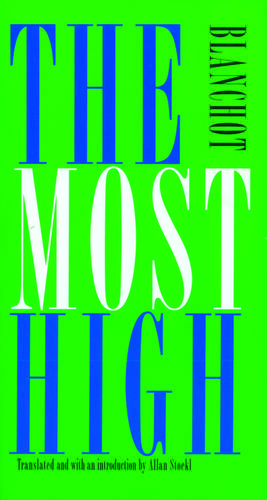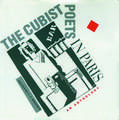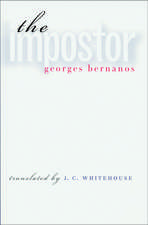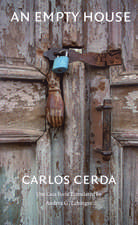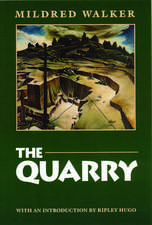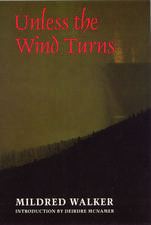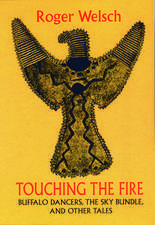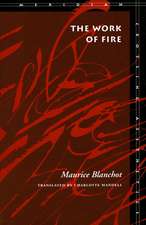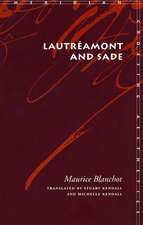The Most High: French Modernist Library
Autor Maurice Blanchot Traducere de Allan Stoeklen Limba Engleză Paperback – 30 apr 2001
Preț: 109.26 lei
Nou
Puncte Express: 164
Preț estimativ în valută:
20.91€ • 21.89$ • 17.30£
20.91€ • 21.89$ • 17.30£
Carte disponibilă
Livrare economică 15-29 martie
Livrare express 01-07 martie pentru 52.09 lei
Preluare comenzi: 021 569.72.76
Specificații
ISBN-13: 9780803261907
ISBN-10: 080326190X
Pagini: 258
Dimensiuni: 140 x 216 x 21 mm
Greutate: 0.32 kg
Editura: BISON BOOKS
Colecția Bison Books
Seria French Modernist Library
Locul publicării:United States
ISBN-10: 080326190X
Pagini: 258
Dimensiuni: 140 x 216 x 21 mm
Greutate: 0.32 kg
Editura: BISON BOOKS
Colecția Bison Books
Seria French Modernist Library
Locul publicării:United States
Notă biografică
Maurice Blanchot has been for a half century one of France's leading authors of fiction and theory. Two of his most ambitious works, The Space of Literature and The Writing of the Disaster, are also available in Bison Books editions. Allan Stoekl is the author of On Bataille and Agonies of the Intellectual: Commitment, Subjectivity, and the Performative in the Twentieth-Century French Tradition (Nebraska 1992).
Recenzii
"Blanchot describes a world where the Absolute has finally overcome all other rivals to its authority. The State is unified, universal, and homogenous, promising perfect satisfaction. Why then does it find revolt everywhere? Could it be the omnipresent police? The plagues? The proliferating prisons and black markets? Written in part as a description of post–World War II Europe, Blanchot's dystopia charts with terrible clarity the endless death of god in an era of constantly metamorphosing but strangely definitive ideologies."—Translation Review
The Most High's somewhat hallucinatory parables clearly have their precedent in Kafka. But if the novel bears a resemblance to The Trial, it portrays a trial whose stakes are reversed. . . . Blanchot's work is of a cold absurdity. If Sorge [the book's protagonist] has any 'significance,' it is that he is not even insignificant, not even the anti-hero of modernism, but rather an absolute nonhero—the only role possible in a posthistorical society." —Review of Contemporary Literature
"Today, fifty years after the manuscript was first delivered to the publisher, and as the temptation to turn aside from the impasse of politics becomes ever more beguiling, the appeal of The Most High has perhaps never been more urgent."—Legal Fictions
